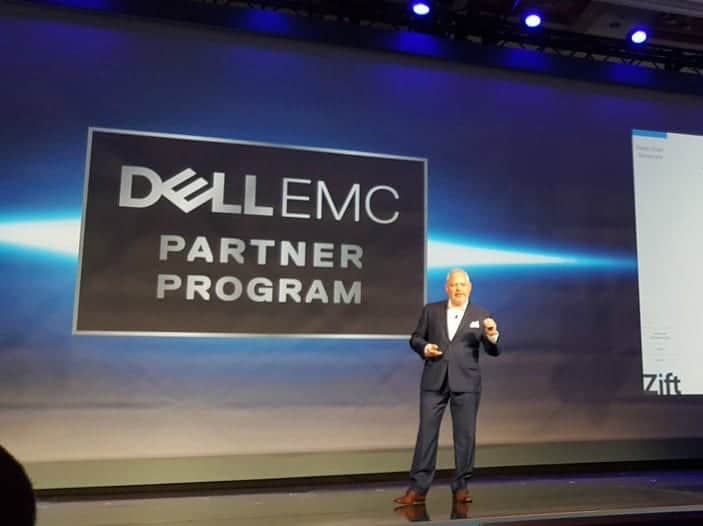
This week, I had the privilege of speaking at the Global Partner Summit during Dell EMC World in Las Vegas. While the event is officially for Dell EMC partners, it’s packed with high-caliber education and training that anyone working in the channel can put to work for their own programs.
I delivered channel-specific guidance for harnessing the power of digital marketing, and I want to share a few of the key insights from our talk with Channel Chatter readers.
The fact is, the modern marketing landscape has changed dramatically – and your channel marketing efforts must change with it, particularly when it comes to helping partners embrace digital marketing. Digital marketing works – but partners need the right tools, skills and support to execute digital to provide measurable results. To that end, here are what I consider the three best practices for digital marketing in the channel.
1) Integration Matters
Today’s buyers are more informed, self-motivated and much less likely to engage with sales professionals. Therefore, partners need to be able to tell their story using multiple, integrated marketing tactics to grab and hold the buyer’s attention. Suppliers must be willing to pitch in to help partners with that process. It’s simply not a one-sum game anymore. Using an integrated mix of inbound (SEO, website, content, blogging, social media, etc.) and outbound (advertising, tradeshows, telemarketing, cold calls, direct mail, etc.) tactics will increase program efficiency and effectiveness. Suppliers should provide demand creation programs, partner plays, scripts, playbooks and value-added content assets, all of which should be easily accessible to partners.
2) Think Strategically
As partners are now attempting to sell solutions rather than products, marketing must be more strategic. Knowing and showing what type of demand to create helps partners know where to start their conversations with prospects. If, for example, a partner needs to educate the buyer on something complex, like cloud storage or converged infrastructure, suppliers will likely need to do more to help partners demonstrate how the process or solution change will retool an existing process, solve current problems better or replace current line items. Suppliers should stand ready to help partners with talk tracks, buyer-aligned messages, and more to make the switch from describing “established” demand (products the buyer already knows and buys regularly) to a more strategic, “new paradigm” marketing model.
3) Marketing Cannot Be Siloed
Collaboration is critical in the channel and integration has become the new imperative. Supplier marketing and partners must adopt processes and technology that work together to drive effective planning and execution. First and foremost, marketing’s ability to enable sales increases when sales understands its role in enabling marketing. That means marketing and sales must share buyer insights, participate in joint planning and recognize that random acts of marketing don’t drive sales productivity. Moreover, any technology that is put in place to support channel marketing and management should work seamlessly with established systems.
By rethinking your channel marketing efforts and putting these three key digital marketing insights into play with your partners, you and your channel partners will be better positioned to drive marketing effectiveness and breakthrough performance.
Laz Gonzalez
Laz Gonzalez is Chief Strategy Officer at Zift Solutions. A prominent industry analyst and thought leader, Gonzalez brings unparalleled channel expertise to Zift and has served as strategic adviser to leading B2B channel programs worldwide.




